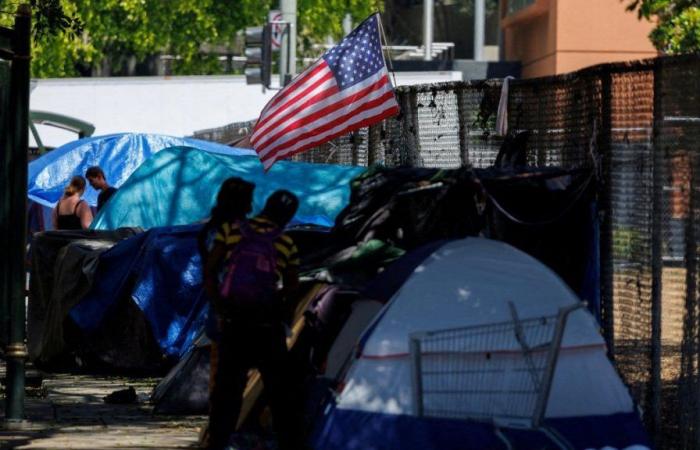The Supreme Court of the United States determined this Friday that laws that prevent homeless people from sleeping in public places are constitutionalrejecting arguments that this practice constitutes “cruel and unusual punishment.”
The case before the court arose from the regulations of the city of Grants Pass, Oregonthat camping or using any type of bedding is prohibited on public property. This measure was implemented after city parks became filled with tents, blankets and cardboard.
Those who violate these regulations face a fine of US$100 and possible prison sentences for repeat offenders. The court’s decision was supported by its six conservative justices, with three liberal justices opposing it. The ruling states that homelessness does not justify invoking the Eighth Amendment, which prohibits corporal punishment.
“The Eighth Amendment to the Constitution serves many important functions, but it does not authorize federal judges to take away those rights and responsibilities from the American people and instead dictate this nation’s policy on homelessness,” the judge wrote Neil Gorsuch representing the majority.
Homeless people increase in the United States
Currently, there is a record 653,100 homeless nationwide, according to a census taken in 2023. The Supreme Court took up the case following complaints from a coalition of Republican-led states, such as Arizona, and progressive leaders such as California Gov. Gavin Newsom, who claimed that a lower court ruling prevented them from addressing the homeless crisis.
The argument of the conservative wing determined that The issue must be resolved by each state and each city. However, advocates for the homeless have argued that banning camping for those without a place to spend the night amounts to a “cruel and unusual punishment” sanctioned by the Eighth Amendment of the US Constitution.
“Sleep is a biological necessity, not a crime. For some people, sleeping outdoors is their only option,” said progressive Justice Sonia Sotomayor. Grants Pass, a municipality of 40,000 residents, lacks public shelters for the homeless.
The arguments against the ban
Economists say that the North American country does not have sufficient housing stock to meet demandwhich raises prices and mainly affects the most vulnerable sectors, increasing the number of homeless people.
In addition, critics point out that laws criminalizing sleeping outdoors they do not address the underlying causes of homelessnessas the affordable housing shortagehe unemployment and lack of access to mental health and addiction services.
Advocates for the homeless insist that punitive policies only aggravate the situation, displacing the homeless without offering sustainable solutions. In this sense, they support the search for an approach that includes more shelters, housing programs and comprehensive support to help people get out of the street situation.


